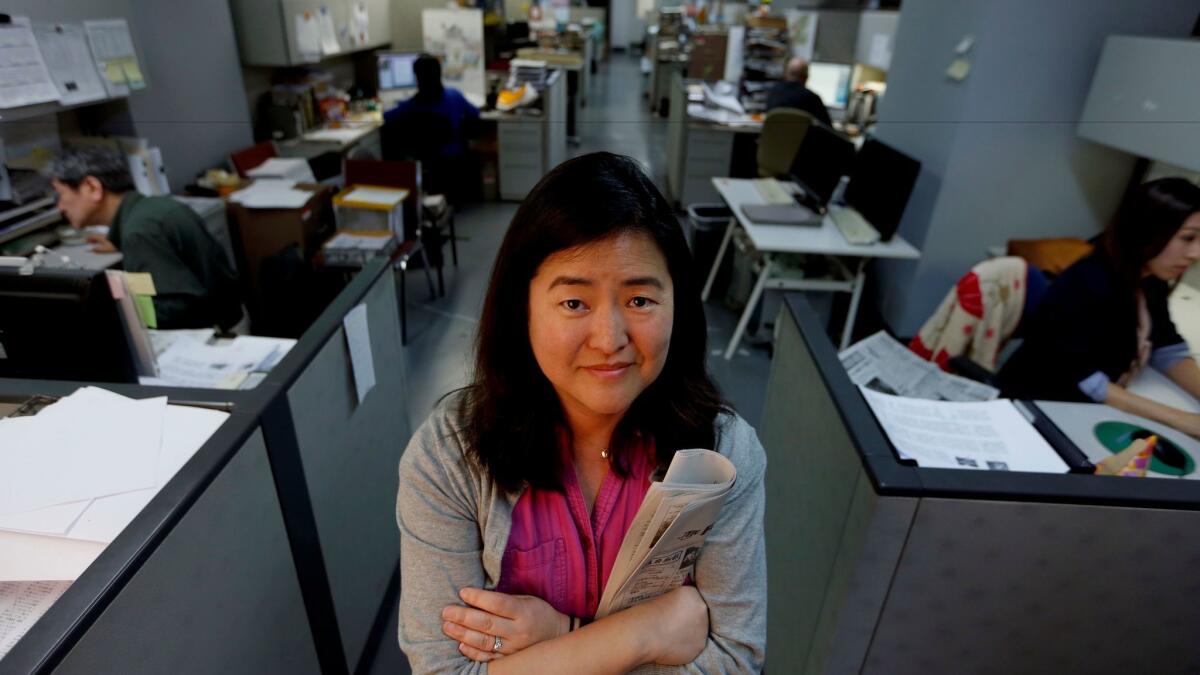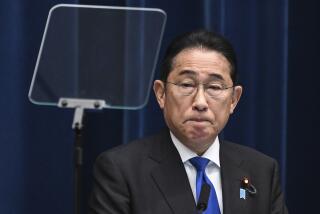Rafu Shimpo, one of the last Japanese-English daily papers in the nation, won’t shut down — for now

The Rafu Shimpo newspaper, one of the last Japanese-English dailies in the nation, said Sunday that it has drummed up enough new revenue to stay open through 2017. The paper warned in the spring that it could close at the end of this year.
The 113-year-old paper, based in the Little Tokyo neighborhood of Los Angeles, was able to stay open through a combination of new subscribers and newfound sources of revenue, said Ellen Endo, a former Rafu editor who now serves as interim chief operating officer for the paper.
The Rafu has netted about 1,500 new online subscribers since Rafu publisher Michael Komai penned a front-page letter in March about the paper’s dire financial situation. He urged community members to purchase a $50 online subscription to the paper.
That was well short of Komai’s goal of 10,000 new online subscribers and $500,000 in revenue. But print subscriptions have also increased, marking the first time in two decades that the paper had seen such a boost, Endo said.
She said the newspaper staff attended numerous Japanese American community festivals and events and set up tables to sell subscriptions.
”It’s just been overwhelming, the support we’ve received from the community,” said Gwen Muranaka, English editor-in-chief.
The paper has started to digitize its archives, starting with the years leading up to and following World War II. It plans to license them to universities, museums and libraries in the U.S. and abroad.
The Rafu has also hired a head of sales, longtime columnist George Toshio Johnston, to focus on generating more ad revenue. That position has not been filled for the last four to five years.
Community member Mark Nakakihara came on as a pro-bono consultant to advise Endo on production and delivery savings, such as re-negotiating deals for printing and mailing, which are two of the Rafu’s biggest expenses.
“I’m focusing first of all on making sure we can live within our means,” Endo said. “Second, to make sure the product is as good as it can be.”
For more business news, follow me @smasunaga
ALSO
Gannett pulls offer for Tronc, owner of L.A. Times, after six-month pursuit
This couple put $1,000 on a gift card. But then the money disappeared
McDonald’s to pay $3.75 million in dispute over worker pay at franchise restaurants
More to Read
Inside the business of entertainment
The Wide Shot brings you news, analysis and insights on everything from streaming wars to production — and what it all means for the future.
You may occasionally receive promotional content from the Los Angeles Times.











